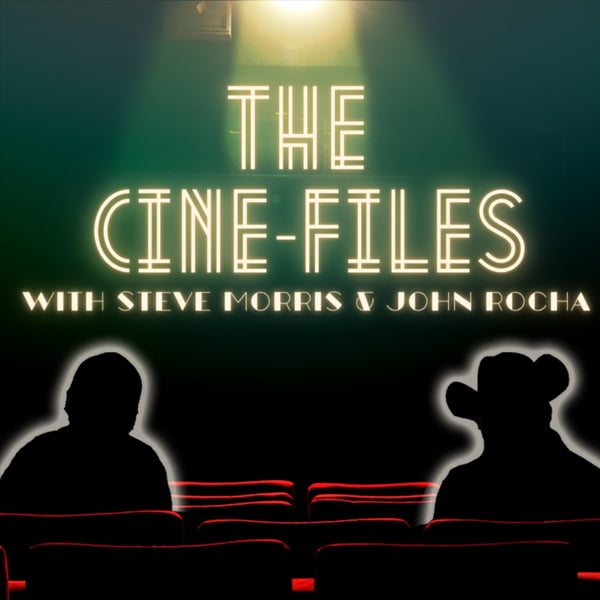Tribute to William Friedkin and The French Connection
The Cine-Files
Steve Morris & John Rocha
4.8 • 1.5K Ratings
🗓️ 8 August 2023
⏱️ 75 minutes
🧾️ Download transcript
Summary
Yesterday we lost one of the great directors of 70s Cinema, William Friedkin. With films like The French Connection, The Exorcist, Sorceror and To Live and Die in LA, Friedkin, definitely left an indelible mark on the world of film. John and Steve Discuss his career in a brand new intro for their discussion of one of the great cop movies of all time, The French Connection.
If you haven't seen this incredible film you can buy or stream it right here.
https://amzn.to/3OLzN86
Don’t forget to support The Cine-Files at https://www.patreon.com/TheCineFiles and purchase any film we feature at https://www.cine-files.net
Facebook: https://www.facebook.com/TheCineFilesPod/?ref=bookmarks
John @therochasays
Steve @srmorris
The Cine-Files
Twitter @cine_files
Instagram thecinefilespodcast
Our Sponsors:
* Check out Factor: http://factor75.com
Advertising Inquiries: https://redcircle.com/brands
Privacy & Opt-Out: https://redcircle.com/privacy
Transcript
Click on a timestamp to play from that location
| 0:00.0 | Hello and welcome to a special edition of The Cinefiles, I'm Steve Morris, here with |
| 0:11.6 | my partner, John Roca. Hello. And John, we lost another important director, and that |
| 0:17.9 | is William Friedkin, passed away today. Yeah. And we wanted to just take a moment to |
| 0:23.0 | honor him. What a, what a legacy William Friedkin leaves behind, passing away at this |
| 0:29.5 | lady, you know, pretty much relevant through the 70s, but still even now as we're on the |
| 0:36.0 | precipice of a new exorcist movie coming out later on this year in the, on the 50th anniversary |
| 0:42.9 | of that film coming out, his movies still are a topic of conversation. And the one we're |
| 0:48.8 | doing the introduction for today is no different as we saw some censorship issues arise from |
| 0:56.0 | this movie recently on the criterion collection channel and other places. And that tells you |
| 1:02.7 | that the power of his films still endure all these decades later. French connection is such, |
| 1:09.3 | I think that is a turning point in filmmaking wins the best picture in 1971. It is a groundbreaking |
| 1:16.9 | movie in every way. I don't think movies ever look the same after the French connection. |
| 1:21.9 | It just opens up so many different possibilities for ways to make films. And I wanted to |
| 1:25.9 | you know, I looked into it a little bit about Mr. Friedkin's biography. He was born in Chicago |
| 1:30.8 | in 1935. His parents are Jewish immigrants from the Ukraine, fleeing anti-Semitism. The guy |
| 1:38.0 | decided he wanted to be in the film world pretty young after seeing Citizen Kane ended up in the |
| 1:43.6 | mail room of WGNTV right after high school. He made his, yeah, in Chicago, he made his first |
| 1:49.7 | documentary in 1962. And that's really what he was. He was a TV documentary guy. And he's one of |
| 1:55.3 | these guys. He's a little bit later than like Sidney Lamette, but along with John Frankenheimer and |
| 1:59.5 | a bunch of other directors that came out of that live TV television world to make their way into film. |
| 2:06.3 | Yeah, I mean, listen, the list of his films from the 70s are fascinating because you look at the |
| 2:11.6 | boys in the band. That's 1970 dealing with homosexual topics in that film. Then the French connection |
... |
Please login to see the full transcript.
Disclaimer: The podcast and artwork embedded on this page are from Steve Morris & John Rocha, and are the property of its owner and not affiliated with or endorsed by Tapesearch.
Generated transcripts are the property of Steve Morris & John Rocha and are distributed freely under the Fair Use doctrine. Transcripts generated by Tapesearch are not guaranteed to be accurate.
Copyright © Tapesearch 2025.

